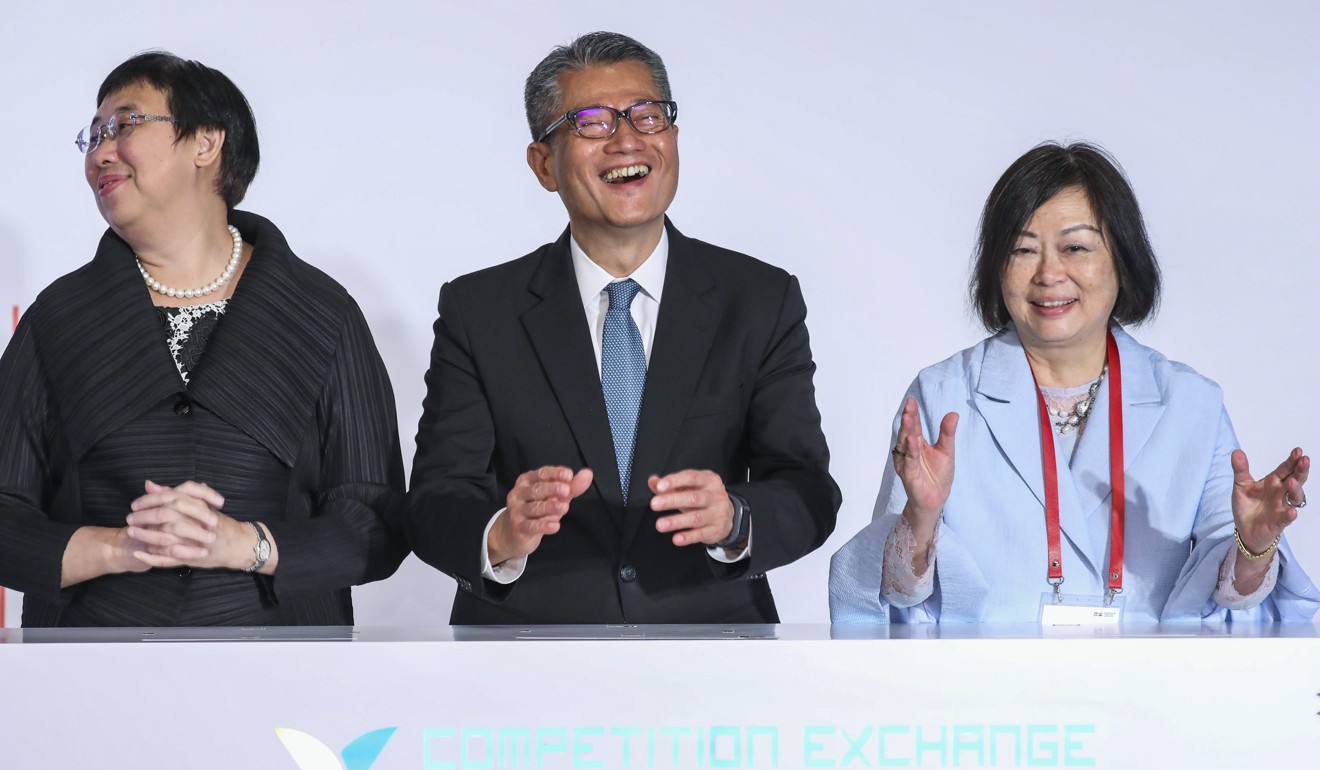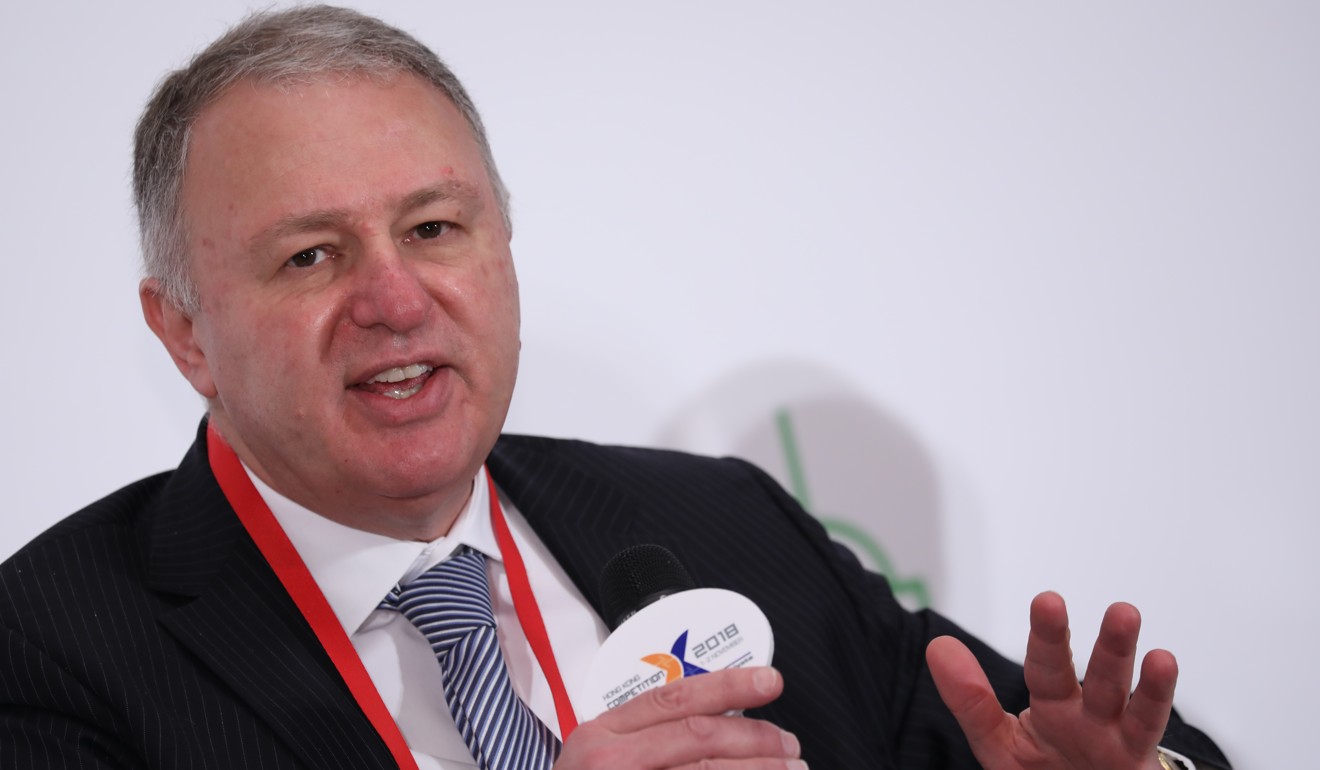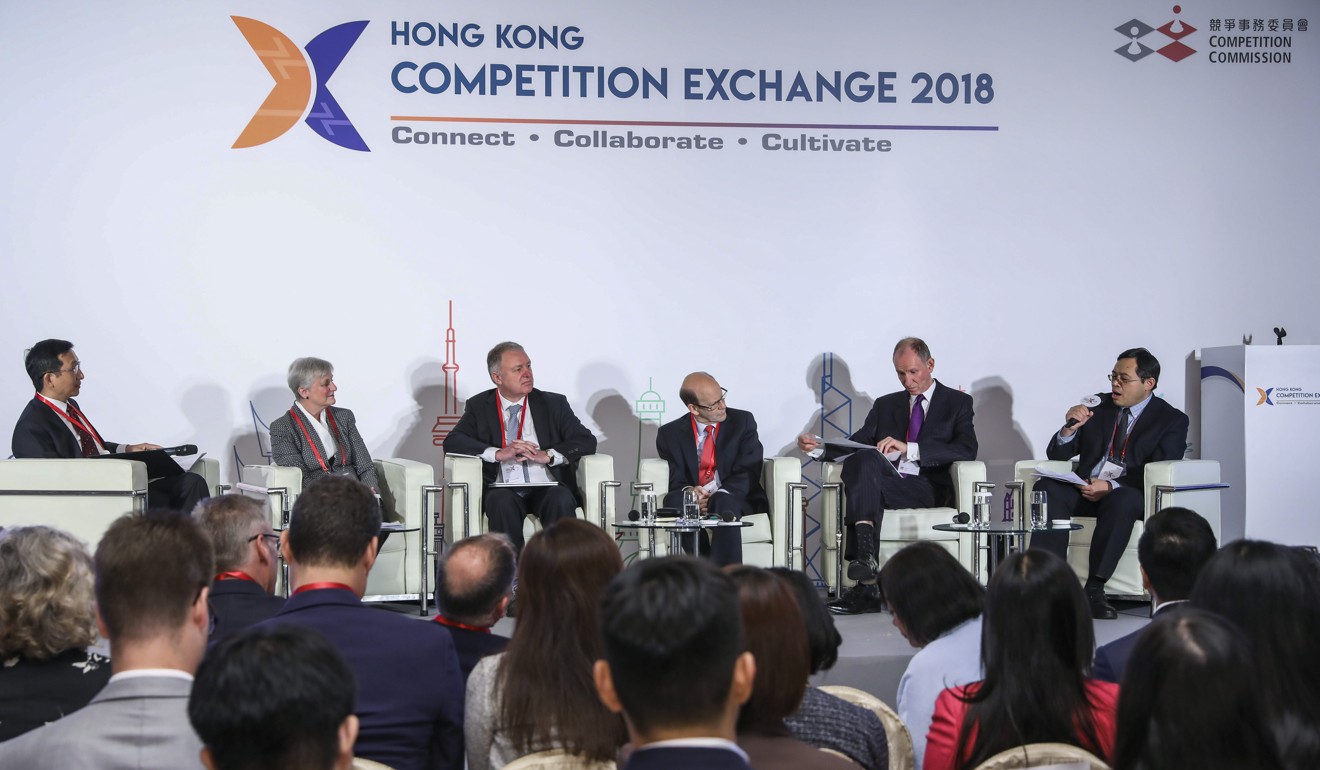
Economists should debate disputed business practices in court to aid judges, head of Hong Kong’s Competition Tribunal says
- Godfrey Lam says lessons can be learned for the city from the experience of other jurisdictions
- Experts say debates in court, known as ‘hot tubbing’, can help judges to understand complex economic matters
Hong Kong’s Competition Tribunal could learn from the experience in foreign jurisdictions in allowing economists to debate disputed business practices in court to help judges understand complex economic evidence.
The tribunal’s president Godfrey Lam Wan-ho made the remarks on the sidelines of the city’s anti-trust watchdog’s inaugural Competition Exchange forum.
The international event, organised by the Competition Commission and of which the South China Morning Post is a media partner, attracted more than 200 anti-trust and legal professionals, businessmen and officials from around the world.

Under anti-trust laws, companies are prohibited from employing uncompetitive practices, such as forming cartels, to monopolise the market at the expense of consumers. Businesses can be brought to the competition tribunal in their jurisdictions.
Hong Kong’s anti-trust law was implemented nearly three years ago.
In a panel chaired by Lam, judges from Europe, the United States and South Africa agreed that it has been challenging for judges to understand and adjudicate based on economic evidence, or evidence given separately by economists representing both sides on business details.
Time for the Competition Commission to bare its teeth
Norman Manoim, chairman of South Africa’s Competition Tribunal, said his tribunal has tried to overcome the challenge by asking the economists to give, or even debate on, their evidence side by side – rather than doing it one after another.
“One of the techniques we’ve been trying to deal with the situation is to use what is called the ‘hot tub’,” he said. “We get the economists to do their own presentation before us … and then we get them to debate among themselves the issues and we keep the lawyers in the background.”

Denise Cote, a judge from the US District Court for the Southern District of New York, said while there was no such “hot-tubbing” in her jurisdiction, judges have been lining up experts on the two sides to debate major topics in anti-trust cases.
Peter Roth, president of Britain’s Competition Appeal Tribunal, acknowledged that economists representing businesses in hearings could be too biased towards their clients. But there are ways to avoid that too, he added.
Hong Kong anti-trust regulator takes first legal action since competition law came into effect in late 2015
“In the judgments … if we think that [an economist was] just being partisan, then we say so,” he said.
“[Judges could say that] we didn’t find [the expert] very helpful because he or she, in answer to questions, showed himself to be very much taking one side and not being altogether objective.”
To avoid damaging their reputation, the experts would then avoid being biased or even tell their clients what they cannot say in court, Roth said.

After the panel discussion, Lam told the Post that his tribunal could “experiment with hot tubbing” in the future.
“The idea has value for us … Right now our procedure should be able to accommodate this,” he said.
Since the Competition Ordinance was implemented, the Competition Commission has taken three cases to the tribunal. That included a court action filed in September against three construction companies and two directors over a market-rigging scheme on a government-subsidised estate in San Po Kong.
At the conference, Competition Commission chairwoman Anna Wu Hung-yuk also said she hope the government will be more understanding and determined in encouraging competition in the city.
“You need political will within government to change. If it doesn’t understand [what] a competition policy is, then that political will is going to be very slow coming,” she added.

